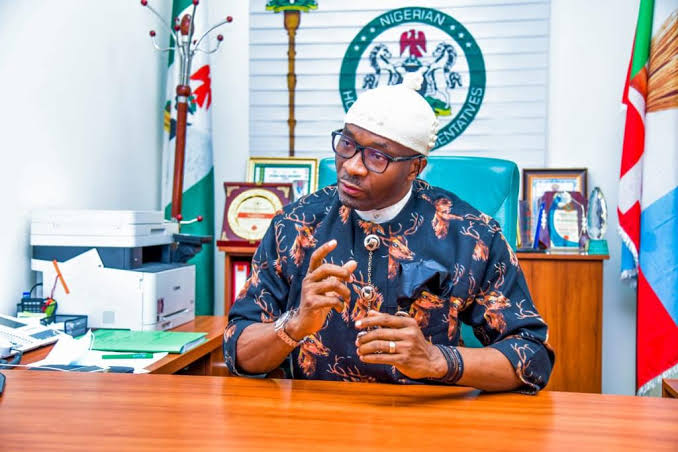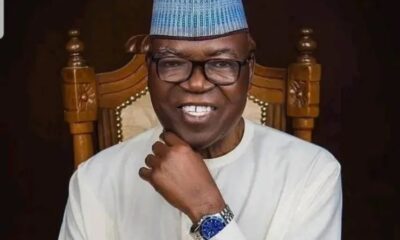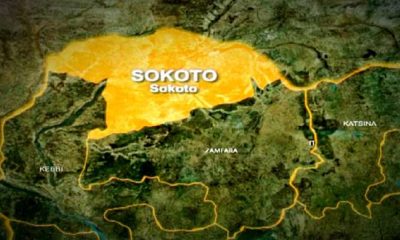News
SEE List of bandit kingpins wasted by Nigerian army

The North-West region, is battliing with massive violence due to local militias, commonly referred to as “bandits.”
Recall it all started in 2011 due to tensions between Hausa farmers and Fulani pastoralists, has worsened in recent years, particularly in Zamfara, Kaduna, and Katsina states.
These bandits have instilled fear and chaos in villages, operating with increasing audacity and impunity.
In response, security agencies have intensified their efforts, launching numerous offensives against these criminal elements.
The Nigerian military has also conducted several air strikes targeting bandit strongholds.
In May, Defence Minister, Muhammad Badaru reported significant progress, stating that a coordinated effort among the Service Chiefs and other security agencies had resulted in the elimination of over 9,300 bandits and insurgents, with an additional 7,000 arrested in the past year.
A notable development occurred recently when the Nigerian Army successfully eliminated Kachalla Halilu Sububu, a notorious bandit leader and arms supplier.
Sububu, who was a major figure in the region’s banditry, was known for his operations in the Sububu Forest and his substantial cattle herds. His death is seen as a significant blow to bandit operations in the area.
Despite these efforts, many bandits remain on the Army’s wanted list, continuing to pose a serious threat to regional security.
Here’s a full list of some of the bandits’ leaders who have been killed as confirmed by the military:
1. Halilu Sububu
2. Buhari Alhaji Halidu otherwise known as “Buharin Yadi” – He unleashed terror on citizens in Kidandan/Galadimawa general areas of Giwa LGA, Sabon Birni/Kerawa general areas of Igabi LGA, other locations in nearby Sabuwa LGA of Katsina State, and indeed some parts of Niger and Zamfara states.
3. A kingpin commonly called Dangote was killed in a gun battle with Kachalla Dankarami’s camp along the Dumbunrun Forest between Batsari and Jibia local government areas of Katsina State.
4. Boderi Isyaku – A notorious bandit leader, responsible for the kidnapping of 39 students of the Federal College of Forestry Mechanisation and the attack on the Nigerian Defence Academy (NDA), Kaduna in 2021.
5. Kachalla Dan Chaki
6. Dogo Gudali
7. Dogo Rabe – He was killed in an Air Force strike during an operation to flush out terrorists operating in communities between the Zurmi and Birnin Magaji areas in Zamfara State, and Jibia in Katsina State.
8. Alhaji Auta and Kachalla Ruga – They were killed alongside many of their gang members in a raid on their enclaves at Gusami Forest and Tsamre village in Birnin Magaji Local Government Area of Zamfara State.
9. Rufai Maikaji – He was a deadly bandit who commanded over a hundred fighters in the state.
10. Ya’u – He was killed in an ambush by the troops at a strategic crossing point in Burra, Ningi. He was the leader of the gang which is notorious for using heavy weaponry to instill terror among the residents of Burra and neighbouring communities.
11. Alhaji Karki – He was killed while attempting to overrun a military unit in Niger State. Karki, who once repented but later went back to criminality, had been terrorizing Niger communities and was responsible for killings, arsons and kidnappings in the areas.
12. Bandit leader “Yellow” – He was operating several bandit camps in Zamfara, Kaduna, and Katsina states, but was killed following Nigerian Airforce air strikes in Katsina and Zamfara states.
News
A Chat with Janet Odio Okolo: A Mother’s Journey Raising a Child with Down Syndrome

News
Hon. Nnamchi Begins Street Lights Deployment In Isi Uzo(Photos)

Honourable Paul Sunday Nnamchi, representing Enugu East/Isi Uzo Federal Constituency in the 10th House of Representatives, has fulfilled his promise to illuminate communities in Isi Uzo Local Government Area.
The lawmaker has just begun the deployment of high-density solar-powered street lights in Ikem Nkwo, marking the beginning of a massive rollout of the street lamps across the communities in Isi Uzo.
This initiative, which started in Enugu East Local Government Area in 2024, aims to support the fight against insecurity in the state which according to him was to add to what Chief Security Officer of Enugu State Barrister Peter Mba had done to secure the state to attracts foreign investments.
The lawmaker expressed concern over banditry attacks, particularly by herdsmen, in some communities within Isi Uzo and Enugu East Local Government Areas in the recent pasts.
He believes that illuminating these areas with high-density street lights would help address the insecurity adding that he was prioritizing border and farming communities in Isi Uzo, where banditry has displaced residents and restricted farming activities.
Communities in Ikem, Eha-Amufu in Isi Uzo which borders Enugu and Benue State and Ugwogo-Nike in Enugu East have been vulnerable to these attacks due to their strategic locations.
News
May Day: Kalu Hails Workers, Applauds Their Role in Nation Building

By Gloria Ikibah
Deputy Speaker of the House of Representatives, Rep. Benjamin Kalu, has extended warm wishes to Nigerian workers as the country marks the 2025 edition of International Workers’ Day.
Kalu praised workers across various sectors for their commitment and resilience, describing them as the engine that keeps the nation moving. He acknowledged their sacrifices and unrelenting drive, especially during tough economic times.
In his message, he highlighted the efforts of the current administration under President Bola Tinubu to improve the welfare of public servants. He referenced the National Assembly’s prompt backing of the new minimum wage as a sign of the government’s seriousness about workers’ wellbeing.
The Deputy Speaker appealed for continued patience and understanding from Nigerians, noting that the ongoing economic reforms, while challenging, are designed to bring long-term relief and prosperity.
Kalu also called for unity, and said the country can only overcome its present difficulties if citizens and leaders work together in good faith.
He therefore urged workers to keep the faith and remain steadfast in their duties, assuring them that brighter days are on the horizon, and wished Nigerian workers a peaceful and fulfilling May Day celebration.
-

 Metro20 hours ago
Metro20 hours agoGunmen storm University of Benin teaching hospital, kill doctor
-

 Metro21 hours ago
Metro21 hours agoFCTA destroys 601 motorbikes over violations
-

 News12 hours ago
News12 hours agoAlleged money laundering: EFCC produces Aisha Achimugu in court
-

 News20 hours ago
News20 hours agoJust in: FG declares tomorrow public holiday
-

 News14 hours ago
News14 hours agoJUST IN: Major General Paul Ufuoma Omu Rtd, dies at 84
-

 News13 hours ago
News13 hours agoTinubu hails Dangote’s World Bank appointment
-

 News16 hours ago
News16 hours agoSAD! Professor’s son takes own life inside varsity staff quarters
-

 News20 hours ago
News20 hours agoFull list: FG approves N110bn to rehabilitate medical schools 18 institutions























